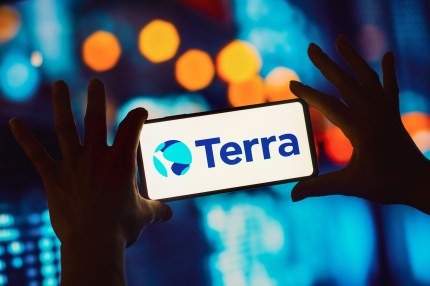Self-driving vehicles rely on many sensors to detect objects and the world around them. The conventional approach is to work with cameras and lidars. But some tech companies and startups have built advanced high-resolution radar technology for autonomous vehicles, also known as 4D imaging radar.
Among them is a South Korea-based startup called bitsensing. The startup says its 4D imaging radar is not just for autonomous driving but can also be applied to smart cities and digital healthcare, and it closed a $25 million Series B round for the high-resolution radar technology.
Bitsensing was founded in 2018 by Jae-Eun Lee, CEO of bitsensing, a former senior research engineer who led South Korea’s first midrange 77GHz advanced driver-assistance system (ADAS) for vehicles at Mando Corporation, a Korean Tier 1 supplier.
Lee was inspired in 2015 after he saw a tragic road collision at the Incheon Yeongjong Bridge in Korea due to heavy fog and poor visibility. That turning point helped him realize how crucial the adoption of radar technology could be in preventing such accidents, and he decided to focus on accelerating its commercialization by starting bitsensing.
“Traditional approaches, especially in the automotive sector, have often focused on cameras and lidar systems. However, these systems are limited by environmental conditions like poor lighting, fog or rain, which is essential for mobility systems,” Lee said, adding that the limitations can lead to reduced accuracy and reliability in detecting objects and ensuring safety.
When asked if 4D imaging technology can replace lidar in the near future, Lee told me that imaging radar’s current performance cannot yet match the extremely high resolution of current lidar systems, but it holds significant potential. That means as imaging radar technology continues to evolve, it is expected to reach a point where it can replace lidar, likely at a faster pace than the development of lidar itself.
At CES in 2023, Amnon Shashua, CEO of Mobileye, an Israel-based autonomous driving company, said in his speech that Mobileye, which also developed its own 4D radar, only wants to deploy 4D imaging radars except for the front lidar by 2025. Shashua’s comment caught the attention of industry people. According to a report by Frost & Sullivan, most OEMs will incorporate 4D imaging radars into their ADAS/AD sensor suite alongside cameras, lidars, and other perception and imaging radars.
Bitsensing is not the only company developing 4D imaging radar. California-based Altos Radar and Tel Aviv- and Dallas-based Arbe Robotics have also built high-resolution radars for autonomous cars to perceive objects around them. Lee also mentioned Oculii and Zendar as the startup’s peers in the industry.
When asked what’s so different from its competitors, its high-solution 4D imaging radar provides a surround detection solution for self-driving vehicle systems with a range coverage of more than 300 meters and a 50% advancement in detection range compared to conventional radar.
On top of that, the company claims that its traffic insight monitoring sensor (TIMOS) is the first sensor to integrate an edge AI computing device into an intelligent transportation system (ITS) solution.
For example, its 24GHz AI traffic radar device is powered by Nvidia Jetson with an integrated GPU system. That means the elimination of cumbersome external PCs and cables with its TIMOS, instead of being a single system that rapidly moves data collection to analysis. The TIMOS, which is now being used across six countries, provides visibility and intelligence across 12 lanes of traffic and vehicle detection like cars and motorcycles. It also can identify safety issues, including jaywalking, wrong-way driving, speed violations, and stationary vehicles.
“Our traffic solution fuses camera and radar technologies and we’re currently working on a number of projects to install this fused radar offering along highways from South Korea and beyond,” Lee continued. “The benefits include management of traffic and tracking unexpected events such as stopped cars, while also providing real-time traffic insights to control centers on the volume of vehicles, speeds and occupancy.”
The outfit also wants to apply its radar technology for digital health, specifically sleep care. The company says its radar can monitor sleep quality, apnea, and limb movements and offer data analysis about users’ sleep conditions.
“For health tech, we provide the radar hardware as well as APIs for companies to integrate sleep quality monitoring into their software,” Lee told TechCrunch. “Currently, our solution is being introduced into senior care facilities and hospitals in South Korea, Singapore, and Japan.”
Lee said the outfit is currently in the revenue growth stage and is trying to expand globally through strategic partnerships. It can offer hardware and software, data, and licensing contracts.
“Recently, delays in the commercialization of autonomous driving technology have become a significant issue, leading some to believe there might be limitations in the sensor market. However, with the transition to the era of software-defined vehicles (SDV), there is an increasing need to quickly integrate high-performance and multiple sensors from the early stages. Consequently, the market for imaging radar and advanced radar is expected to expand very fast,” Lee mentioned.
Investors, including Korea Development Bank, HL Mando Corporation, Industrial Bank of Korea, and Aju Capital, participated in the latest round, which brings its total raised to $46 million since its inception.






























Comment